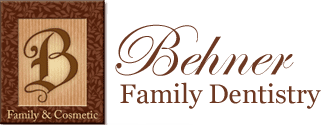
First and foremost, let’s understand the profound impact tobacco has on oral health. Many studies have linked tobacco use with a host of oral health issues, from discoloration of teeth to severe conditions like oral cancer. Moreover, tobacco doesn’t discriminate between different forms of use – smoking, chewing, or vaping – all can lead to serious oral health problems.
In fact, the correlation between tobacco and oral health is so strong that dental professionals can often tell if a person uses tobacco just by examining their mouth. This is not a badge of honor; rather, it is a warning sign that should not be taken lightly.
The Effect of Tobacco on Teeth and Gums
Delving deeper, let’s look at how tobacco affects your teeth and gums. For starters, tobacco interferes with the normal function of gum tissue cells, making smokers more susceptible to infections, including periodontal disease. Moreover, tobacco can cause your teeth to yellow, a consequence of the nicotine and tar in the tobacco.
Sadly, these are not the only repercussions. Tobacco users also have a higher risk of developing oral cancer and may experience delayed healing after dental procedures. The effect is cumulative and the damage intensifies the longer you use tobacco, but don’t despair, steps can be taken to mitigate these risks.
The Truth About Oral Cancer
One of the most alarming facts about tobacco use is its connection to oral cancer. Oral cancer includes cancers of the mouth and the back of the throat. Tobacco use, whether smoking or chewing, significantly increases the risk of developing these cancers.
Alarmingly, studies show that smokers are six times more likely than nonsmokers to develop these cancers. Moreover, about 90% of people with cancer of the mouth, lips, tongue, and throat use tobacco, with the risk increasing with the amount smoked or chewed.
Identifying Early Signs of Trouble
Now, let’s discuss how to spot the early signs of tobacco-related oral health issues. Early detection is vital for successful treatment and recovery, especially when dealing with severe conditions like oral cancer. Routine dental check-ups are crucial as dentists can often detect early signs of problems before they develop into major issues.
Common signs include persistent mouth sores, white or red patches in your mouth, and difficulty or pain when swallowing. Experiencing any of these symptoms warrants an immediate visit to your dentist. The sooner these issues are addressed, the better the outcome.
The Impact of Secondhand Smoke
Don’t assume that if you’re not the one smoking, you’re safe. Secondhand smoke is another serious concern. Even if you don’t smoke, exposure to secondhand smoke can increase your risk of developing oral health issues, including gum disease and oral cancer.
Studies reveal that non-smokers exposed to secondhand smoke at home or work have a 20-30% higher risk of developing oral cancer. If you live with a smoker, it’s crucial for you to be aware of these risks.
Dispelling the Myth of “Safer” Alternatives
When discussing tobacco use, it’s important to debunk the myth of “safer alternatives“. Smokeless tobacco products, often marketed as a safer option, are not harmless. These products, like chew and snuff, still hold a high risk of causing cancer, particularly oral and throat cancers.
Furthermore, e-cigarettes, a popular alternative to traditional smoking, also pose significant risks. Nicotine, the primary addictive substance in all forms of tobacco, is also the main ingredient in most e-cigarettes. It’s clear that no form of tobacco is a safe choice when it comes to your oral health.

Steps Towards Prevention and Recovery
The good news amidst all this information is that the damage caused by tobacco isn’t always permanent. Quitting tobacco use can significantly lower your risk of oral health issues, and your mouth has a remarkable ability to heal.
Regular dental check-ups, a good oral hygiene routine, and a balanced diet can go a long way towards maintaining a healthy mouth. It’s never too late to quit and start repairing the damage caused by tobacco use.
Your oral health should never be a secondary concern. Understanding the impact of tobacco on oral health is the first step towards prevention. Our dedicated team of dental professionals at Behner Dental is committed to helping you understand these risks and work towards a healthier future. It’s time to prioritize your oral health and take action against the risks associated with tobacco.





